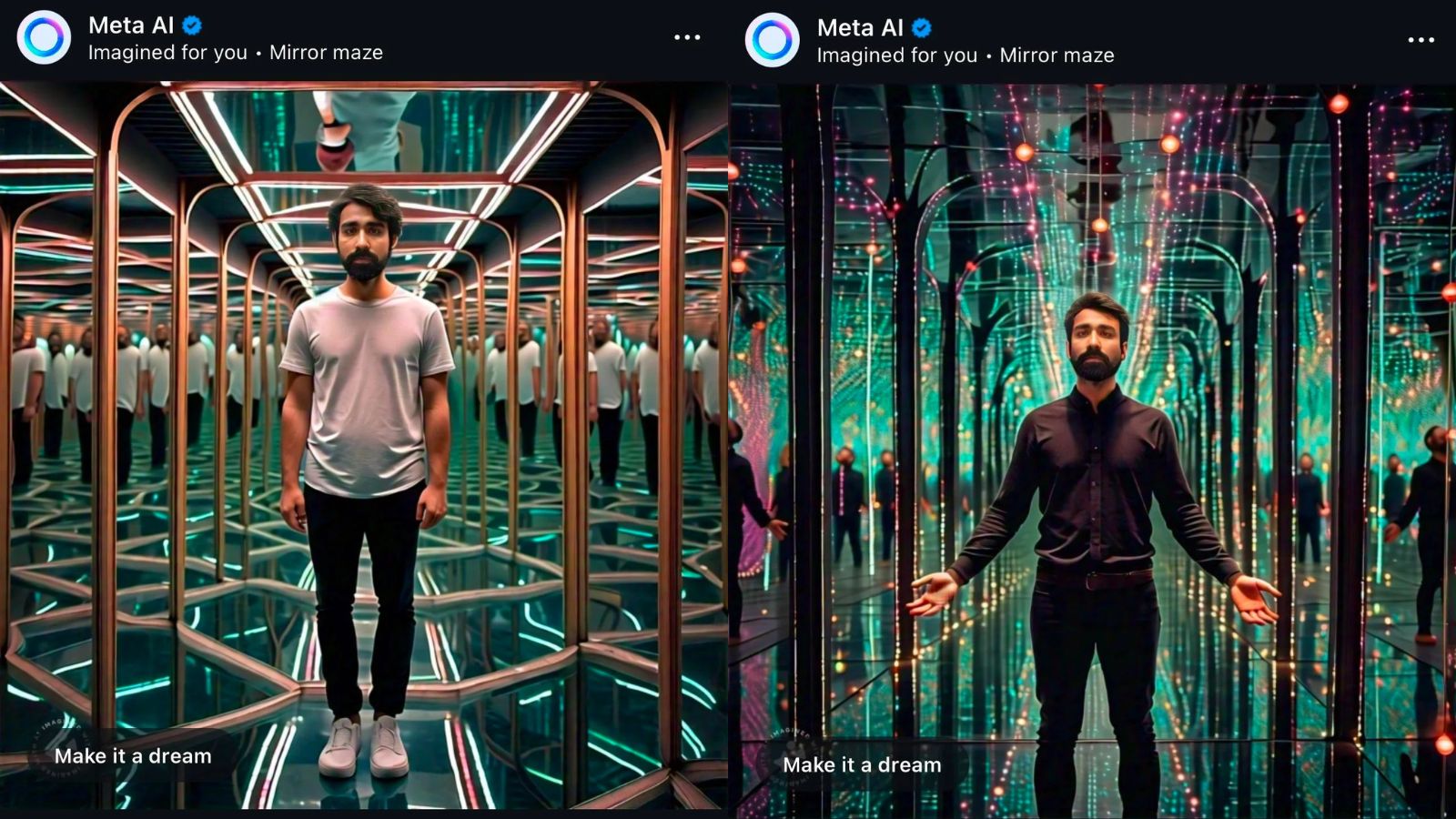Meta Seems Unsure How to Navigate AI Development

Meta’s Controversial AI Experiment: A Closer Look
Meta, the parent company of Instagram and Facebook, is back in the spotlight for its latest AI initiative. Recently, many users reported seeing AI-generated images of themselves in their Instagram feeds, courtesy of the new ‘Imagine Me’ feature. This development has triggered mixed reactions, primarily skepticism and outrage.
The Inception of ‘Imagine Me’
The incident that caught public attention involved a Reddit user with the username u/Green_Video_9831. After using the ‘Imagine Me’ feature to alter a selfie, he was surprised to discover his face appearing in an AI-generated collection of images, reminiscent of a hall of mirrors. His experience sparked widespread discussion on social media platforms, particularly on Reddit, where many users expressed their disgust and ridicule towards the unexpected use of AI technology.
The Context of Meta’s AI Strategy
While this particular feature may seem like a light-hearted gimmick, it reflects a more profound trend within Meta’s operations. Industry observers have noted that Meta has been aggressively incorporating AI across its platforms, seemingly without a clear direction or understanding of what users genuinely wish to see. The company aims to maintain competitiveness in the social media landscape, but its efforts are often perceived as clumsy or meaningless.
Here’s a brief outline of the recurring pattern Meta seems to follow with new AI features:
- Announcement of a New AI Feature: Meta introduces a flashy AI tool.
- User Backlash: Users react negatively, whether through mockery, anger, or indifference.
- Phased Withdrawal: The feature is quietly retired without official fanfare.
- Cycle Repeats: Another new AI initiative is launched, continuing the cycle.
Past Failures and Ongoing Challenges
The failure of Meta’s celebrity AI chatbot initiative serves as a significant example of this pattern. In late 2023, Meta rolled out chatbots featuring various celebs such as Snoop Dogg and Paris Hilton, hoping to engage users. However, the project did not resonate with the audience, leading to its discontinuation within just a year. Many had anticipated more from these AI interactions, but the underwhelming reception left Meta with little return on investment.
Financial Implications
Despite these setbacks, Meta continues to invest heavily in AI. The costs associated with rolling out such features—including celebrity endorsements—can reach into the millions. For a company seeking to enhance user engagement, correlation between expenditure and user acceptance remains a significant hurdle. The extensive financial resources available to Meta are not infinite; there are concerns about sustainability in their current approach.
User Sentiment on AI Innovations
Amidst skepticism about the future of features like ‘Imagine Me,’ there remains a core group of users who find novelty in AI-generated content. Picture the enjoyment of seeing unique versions of oneself set against fantastical backdrops. Initially attractive, many question how long users will genuinely engage with such features. Frequent enjoyment seems unlikely, raising doubts about their effectiveness in keeping engagement metrics high.
The Uncertain Future of Meta’s AI Efforts
As Meta continues to explore AI applications, speculation exists whether the company will eventually unveil a groundbreaking feature that radically transforms user interaction. Until such innovation materializes, the company’s existing AI features may be perceived as desperate attempts to maintain relevance in an increasingly competitive digital landscape.
While the potential for generative AI remains vast, the current trajectory for Meta is filled with uncertainty. Its path is akin to a trial-and-error method which, without successful navigation, may lead to challenges unaccompanied by clear solutions. The digital industry awaits to see which direction Meta will take next.






